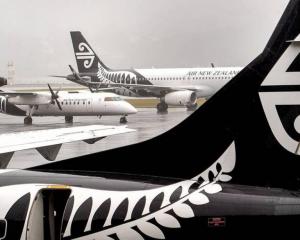
The low-carbon aluminium being produced at the Tiwai smelter was on the pathway to making the plant one of the earliest zero-carbon smelters in the world.
"We should be saving and not be talking about closing [the plant], and if I’m brutally honest, we should be talking about replicating this anywhere we can around the planet."
Mr Blenkiron, the chief executive of NZAS, addressed delegates attending the Murihiku Regeneration Science and Innovation Wananga held in Invercargill this week.
He understood the province was desperate for some certainty around its future but the issue was complex and involved ongoing discussions with key stakeholders, he said.
"We want to be here. There’s no ambiguity in that ... We want to be here for the long term. We are talking of contracts in excess of 15 years — that’s what we are aiming for and that’s what we are talking about.
"The reason we need to get that ambiguity out of the way is for the thousand-odd people who go behind the gates each day and smelt aluminium. The ambiguity hurts them more than anybody else. It breaks my heart. I have to talk to them every single day. I keep them front of mind as we go through these discussions."
He was proud of the plant’s low carbon profile.
The plant’s emissions profile weighed in at two tonnes of carbon per one tonne of aluminium, while the global average was 12-13 tonnes per one tonne of product. In the early 1990s the Tiwai plant was producing about four tonnes of carbon.
"When we say we are low carbon, we are not just marginally better, we are damn near the best on the planet.
"It is very safe to say, in the event of a Tiwai closure, and I’m hoping that’s a long way into the future ... global emissions go up significantly.
"That is something that I’m really proud of and it’s something New Zealand should be damn proud of, that we are making, some of the lowest-carbon aluminium on the planet right here in Murihiku.
Since he started working at the Tiwai site, he had also been committed to working on remediation, regardless of whether the plant remained open or not.
"It is an anchor Murihiku deserves to be proud of."
There had been times when that had not been the case, he said.
"We are still a long way from where we want to be, but we are going in the right direction."
The remediation advisory working group, assigned to work on the progressive remediation plan for the Tiwai site, had applied for two consents for the existing landfill — one short term for the management of landfill for the next five years and the other for management for the next 25 years.
By Toni McDonald












